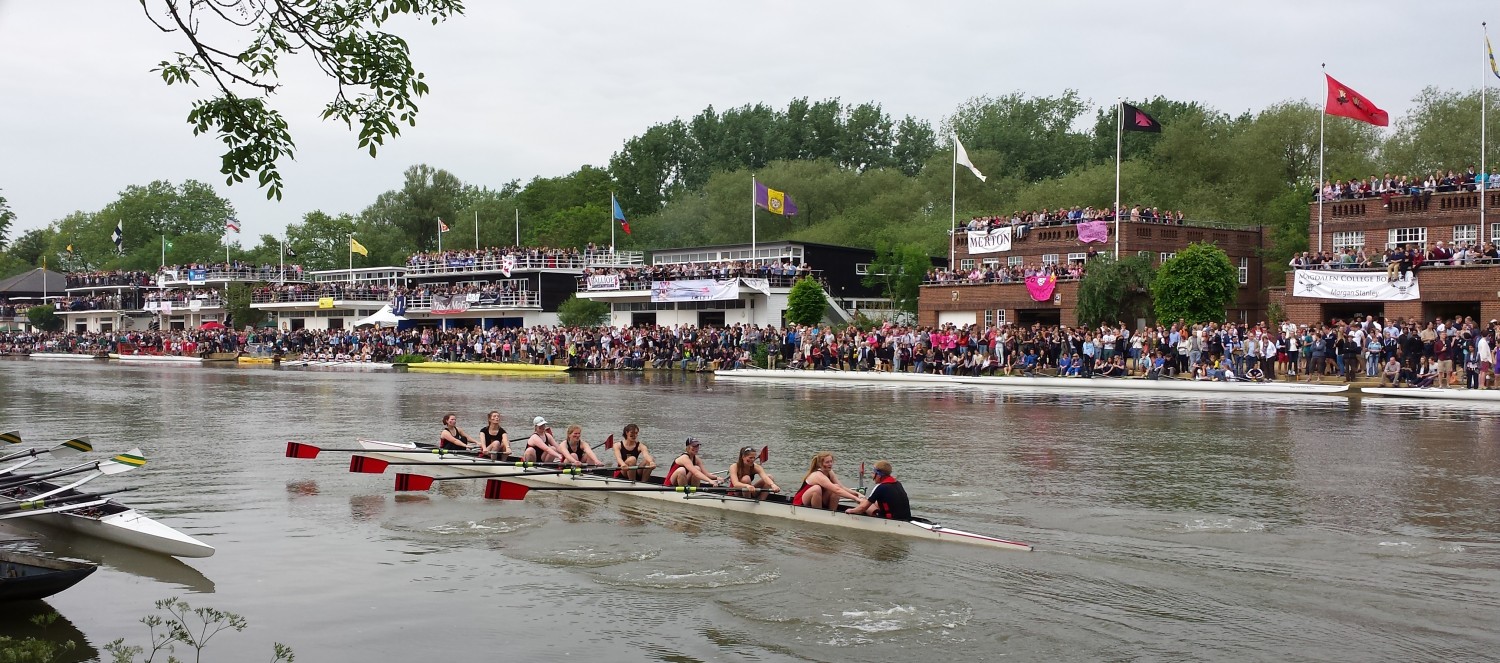Interview with Mario Woldt, Sports Director at the German Rowing Federation – by Howard Aiken
Changing a winning team
Life is tough at elite level in any sport, but it is particularly tough at the top of German rowing. In May 2012 at the World Rowing Cup in Lucerne, the German Women’s Quad (Julia Richter, Carina Baer, Tina Manker and Stephanie Schiller) set a new World Best Time of 6:09.38 in their heat. At the London Olympics just a couple of months later the German Women’s Quad won silver, but Manker and Schiller had been replaced by Britta Oppelt and Annekatrin Thiele.
The idea that you shouldn’t change a winning team is not widely held at the top of German rowing and according to Mario Woldt, Sports Director at the German Rowing Federation, that isn’t going to change. “Every rower in the national squad knows he or she has to compete for their position in any boat. We won’t even begin deciding on our Olympic crews until we see the results from the Rowing World Cup in Lucerne in 2015.” The German rowing squad has traditionally relied on an established and impressively executed strategy of strength in depth. Whether at Senior, Under-23 or Junior level, the German squad has for decades had a wealth of competitive talent available to it in all the Olympic rowing events. “Obviously our chances will be higher in some events than in others, depending on how other countries perform, but like the US and GB teams we will be competing in all 14 Olympic boat classes.”
It starts with the Juniors…
Underpinning the performance of their senior squad is a fiercely competitive and ambitious cohort of junior rowers. Germany’s junior squad had some truly spectacular successes in 2014. At the World Rowing Junior Championships in Hamburg in August, Germany was the only country to have boats in all 13 finals. At that event they also won more medals than any other country including seven gold medals (in the men’s and women’s eights, men’s and women’s single sculls, men’s four, men’s quadruple sculls and men’s double sculls). A performance like this does not happen by accident, and as Mario Woldt pointed out “What we saw in Hamburg was not new.” Germany’s junior rowers had also won impressively the previous year at Trakai in Lithuania, beating Romania, Italy, Australia and the United States and winning eight medals, including four golds.
With most of their Senior rowers still in their early to mid 20s and their Juniors about 5 years younger, German selectors look likely to have plenty of talent to choose from not just in 2016 but in 2020 also. Woldt is very much aware of the benefits a strong junior squad brings to German rowing. “We have a good age mix across the squad and while our juniors are not yet physically equal to our seniors, they have great potential”.
…and their clubs
The roots of German rowing success can be traced back to their local clubs. “We have a really well-developed club system, so we have a lot of rowers to choose from,” says Woldt. With some 600 clubs and over 82,000 members, the German Rowing Federation supports Touring, Masters, Club, League and High Performance Rowing and unlike some sports, rowing is still growing in Germany. In a virtuous circle of achievement, Germany’s ongoing record of success at national level in rowing has maintained a steady flow of new recruits into the sport at club level. From that pool of talent some 250 – 300 rowers are selected for the national squad. These rowers train with their home clubs for most of the time “But we also bring rowers together at our national training camps before the big Championship events.” The German Rowing Federation also holds several training weekends during the year to evaluate their athletes with the final selection for the World Rowing Junior Championships being made at the German National Championships.
Gold for the big boats
As reigning Olympic gold medallists in the men’s eight, it is not surprising that Mario Woldt describes the German squad as ‘big boat’ specialists and is clear that they fully intend to hold on to their gold medal position in 2016. That said, at the recent World Championships in Amsterdam, the German eight was narrowly beaten by the GB boat. The winning margin was just 0.66 sec and the German boat was gaining in the final 500 metres, but it may yet prove significant that the average age of the rowers in the German boat was almost 2 years younger (24 as compared to 26 in the GB boat).
Mario Woldt can’t yet say who will be in the German Olympic eight, but whoever they are, they’ll be the best his team can produce. With Rio now less than two years away and a cadre of hungry young sweep-oar rowers competing for a place in that eight, expect short odds on another German gold medal in M8+ at Rio.
Adaptive / Para – rowing
Para-rowing (what used to be called Adaptive rowing) is another growth area for the German rowing squad. The 2016 Paralympics will certainly be the biggest yet, 12% bigger in terms of the number of medal events than London 2012, but there will only be four rowing disciplines: Men’s single sculls AS (Arms and Shoulders), Women’s Single Sculls AS (Arms and Shoulders), Mixed Double Sculls TA (Trunk and Arms) and Mixed Coxed Four LTA (Legs, Trunk and Arms). Given the complexities of athlete classification in Para-rowing (the FISA Para-rowing classification application form is a ten-page document on its own) selection is a complex and highly individualised process.
Building para-rowing as a sport is the priority for the German Rowing Federation at present. “We want to promote para-rowing and recruit more para-rowers to the squad which is currently quite small. The rules on who can compete in which boats and with which disabilities are complex but we are actively recruiting more adaptive rowers into the sport and look forward to fielding a very competitive squad”.
Is this a Golden Age for German Rowing?
With its current roster of athletes, German rowing is undoubtedly in as good a shape as ever for the next few years. Looking beyond 2020 however the picture is less certain. While club rowing is still growing in Germany, high performance rowing is expensive and clubs are beginning to find this a problem. At present there is no obvious solution to this cash shortage but unless one is found, the high performance ‘elevator’ which takes promising club rowers up into the national squad will get significantly smaller. In addition, secondary level education reforms in in Germany have resulted in changes to the traditional German school timetable. While the school day used to end in the early afternoon (and so left plenty of time for sports), it is being replaced by a more conventional working day (which does not). Other countries have of course learned to live with this tension between the demands of young people’s sport and schoolwork, but it is a new and unpredictable factor in the future of German sport.
It is possible therefore, that today we are looking at a Golden Age in German high performance rowing, a uniquely favourable alignment of funding, participation, expertise and success. Germany will remain hard to beat in 2016 and 2020, but their established formula for success may prove difficult to sustain into an increasingly competitive future.
This article was first pub lished in the November / December 2014 issue of Row360 Magazine (http://www.row-360.com)

